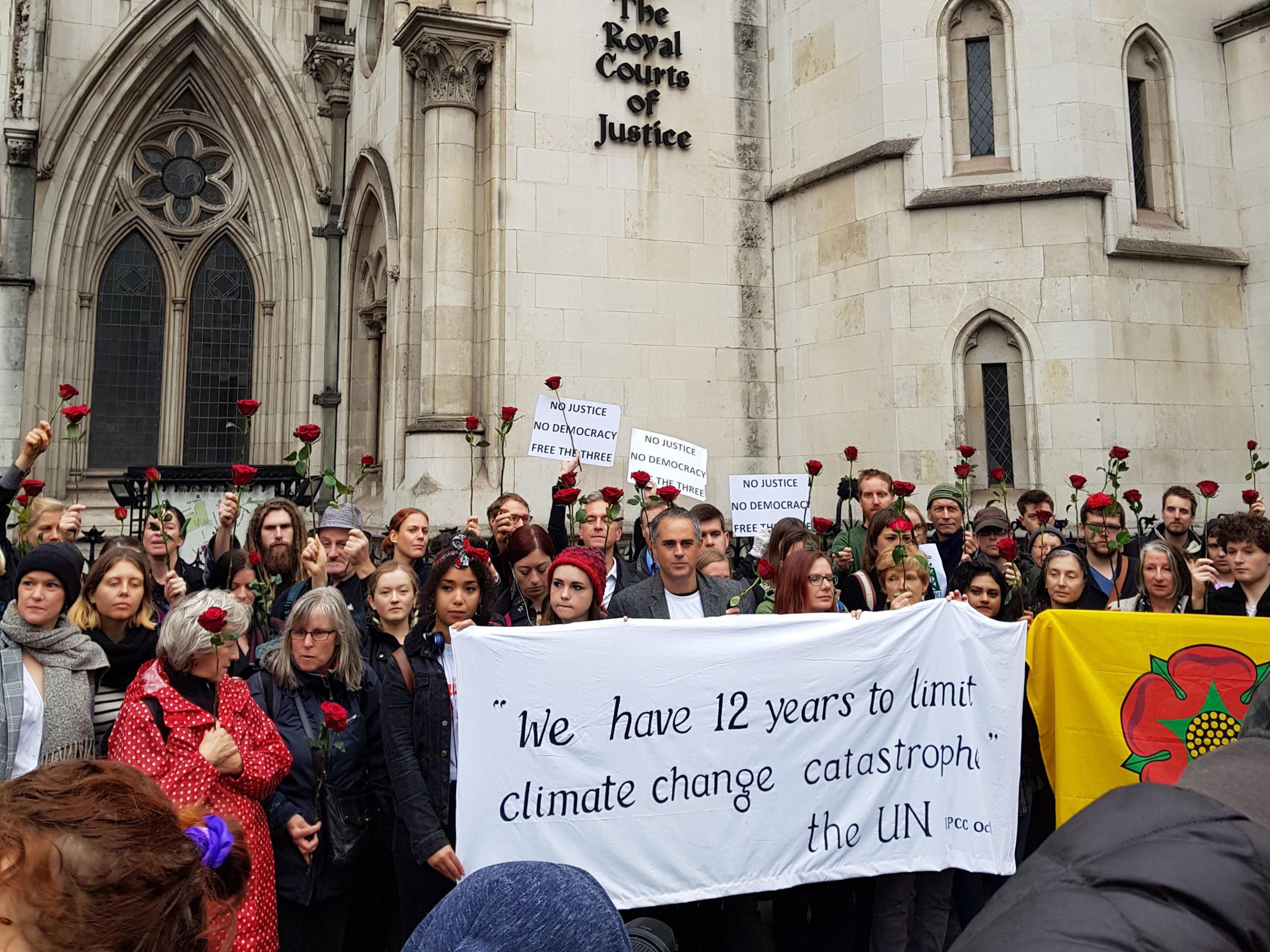The fracking protesters' jail time should worry everyone who cares about democracy and climate change
The right to peaceful protest is a fundamental human right

Your support helps us to tell the story
From reproductive rights to climate change to Big Tech, The Independent is on the ground when the story is developing. Whether it's investigating the financials of Elon Musk's pro-Trump PAC or producing our latest documentary, 'The A Word', which shines a light on the American women fighting for reproductive rights, we know how important it is to parse out the facts from the messaging.
At such a critical moment in US history, we need reporters on the ground. Your donation allows us to keep sending journalists to speak to both sides of the story.
The Independent is trusted by Americans across the entire political spectrum. And unlike many other quality news outlets, we choose not to lock Americans out of our reporting and analysis with paywalls. We believe quality journalism should be available to everyone, paid for by those who can afford it.
Your support makes all the difference.It’s becoming harder and harder to protest in this country.
Sentenced to 15-16 months in prison for climbing on lorries delivering drilling equipment to a Cuadrilla-operated fracking site in Lancashire, Simon Blevins, Richard Loizou and Richard Roberts became the first peaceful environmental protesters to receive immediate jail terms in this country since 1932.
Shockingly, the judge who sentenced them in September said he was sending them to prison straight away because of their “unswerving beliefs that they were right”. As a result, he said, he had decided they were not suitable for rehabilitation.
This is the same as saying that the more committed a protester is to their cause, the more likely it is they will get a custodial sentence if they break the law.
It was a shocking state of affairs that had dreadful implications for protesters up and down the country. It completely ignored the activists’ right to freedom of thought and conscience (which includes conscientious objection to the use of fossil fuels and a belief in the need for urgent action to combat climate change) and trampled over their right to freedom of expression and peaceful assembly – all protected by the European Convention on Human Rights.
Thankfully, on Wednesday the Court of Appeal found the sentences of imprisonment to be “manifestly excessive”. The court said that the men ought to have been given community sentences. Because of the time already served, it was quashing the sentences and replacing them with conditional discharges. The men should now be home with their friends and families.
The right to peaceful protest is a fundamental human right. Protest has been the catalyst for so many movements of positive change. It doesn’t mean that if you break the law, there are no consequences. Protesters know the risks and are prepared to take them. But our common law and the convention both recognise the value of protest – a form of political expression – as absolutely vital to a healthy democracy.
Peaceful protest includes direct action. It includes protests that inconvenience or annoy others. And if a protester breaks the law, the punishment must fit the crime. The UK has never seen a sentence like this for peaceful protest. The potential impact of it cannot be overstated. It would have had the immediate chilling effect of – at best – discouraging others from taking direct action and – at worst – would have stopped many people from protesting in any form at all.
The sentences were handed down amid concern expressed by many campaigners across many different issues that protest in the UK is increasingly under attack.
Whether it’s police refusing to close the roads so that protests can take place at all, requiring protesters to take out expensive public liability insurance, private companies being granted overboard and imprecise injunctions that risk criminalising lawful activities or sentences like these, these developments are all part of the same piece.
The Court of Appeal has yet to give full reasons for its decision yesterday but we hope that when it does it will take the opportunity to remind us all of the importance of peaceful protests and the need to ensure proportionality in the way the law deals with them.
After the judges left court, the men’s families, friends and supporters burst into applause and song in the packed court. We share their obvious relief. These sentences represented a complete betrayal of our society’s values and nothing like this should ever happen again.
Emma Norton is head of legal casework at Liberty
Join our commenting forum
Join thought-provoking conversations, follow other Independent readers and see their replies
Comments